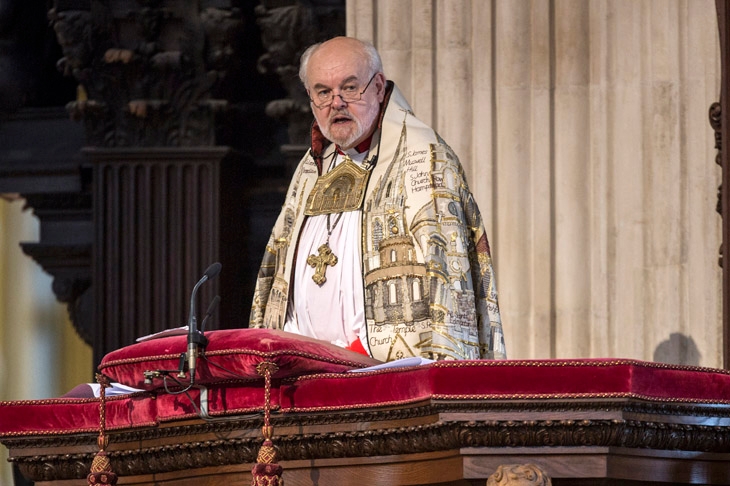In typical theatrical style, the outgoing Bishop of London, Richard Chartres, he of the sonorous voice and imposing beard, ‘never knowingly underdressed’, ‘the last of the great prince bishops’, attended his final service as bishop at last Thursday’s liturgy at St Paul’s Cathedral for Candlemas — the day on which Simeon spoke the words, ‘Lord, now lettest thou thy servant depart in peace.’
Some say Chartres has become rather too fond of dining with the royal family recently and has neglected the duller duty of getting to know his lesser clergy; but the general consensus is that, in his 21 years in the post, through sheer charm and force of character, he has brilliantly managed to keep the almost impossibly polarised diocese of London together. Under his tenure, London has changed from being ‘the problem diocese’ (in terms of numbers) to the great success story.
And so the long-drawn-out process to find his replacement trundles into gear. It will take till November. You hear it bandied about that ‘Theresa May would like the next Bishop of London to be a woman.’ Well, she might, but the fact is that since Gordon Brown changed the rules, the Prime Minister has no say in the matter. Brown (son of the manse) felt so uncomfortable about exercising patronage in the Church of England that he put a stop to it, even though Jack Straw advised him not to change a system that worked. In doing so, he abolished the kind of prime-ministerial whimsicality that had allowed Margaret Thatcher to choose Carey over Habgood. But the change chopped in half the number of ‘gatekeepers’ gathering the names of inspirational high-fliers.
The hub of bishop-choosing is now start-lingly undemocratic — ‘hardly better’, as one clergyman put it to me, ‘than the bad old days of a few men sitting round the club table at the Athenaeum’.








Comments
Join the debate for just £1 a month
Be part of the conversation with other Spectator readers by getting your first three months for £3.
UNLOCK ACCESS Just £1 a monthAlready a subscriber? Log in